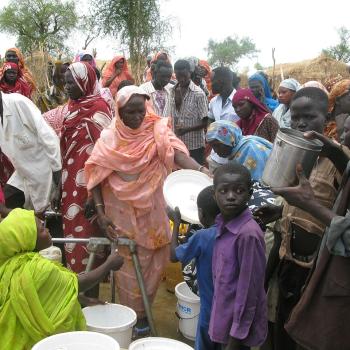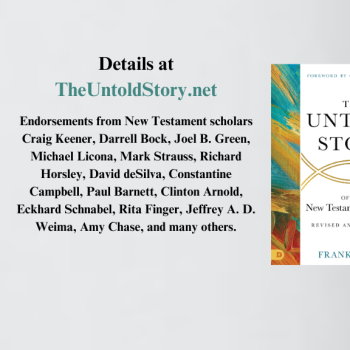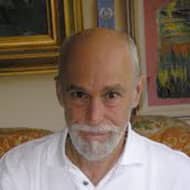Secondly, there's the diverse lineage upon which Stephen Levine draws. While he was a pioneer in bringing Theravada Buddhism to America in the 1960s, he's studied under Neem Keroli Baba and Nisargadatta Maharaj as well; so, unlike most Buddhists, he might refer to God (a.k.a. the Beloved, the One). There's nothing wrong with that, of course; the Buddha's teachings on the art of happiness don't depend on God, but many Westerners turn to the Buddha Way because they're turned off by such belief.
Thirdly, while today's spiritual teachers are wont to tour in order to maintain their following, his health has, alas, precluded that option.* Thus it is that you are reading the only review, to date, of this incomparably marvelous book, a treasury of good soul medicine.
So, let us welcome Stephen Levine's return to poetry. Breaking the Drought can also refer to a return to one of humanity's most ancient of spiritual practices: sacred speech. As such, it's a link back to a continuity temporarily severed by the Technological Revolution. It is a link we need in order to live in a fragmented world, dislocated by loss of spiritual unity. Meanwhile, with such grounding our collective drought continues, literally and figuratively.
We cannot form words with breath alone: the mouth needs moisture in order to speak. In Native American tradition, according to José Hobday, this is one of five essential internal moistures. Tears are the moisture of compassion. Sweat is the moisture of working, of suffering, and of serving. Urine is the moisture of purification. Sexual liquids are the moisture of love and continuance of life. In all dimensions, water is a precious essential, and so is Stephen Levine.
*The good news on that front is that recently some friends of Stephen Levine and his wife Ondrea have put together an online site Levine Talks, including videos, teachings, and . . . poetry.





